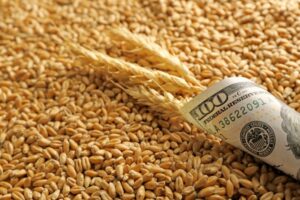
Passenger traffic across the Ukrainian border in the fifth week of spring, from March 29 to April 4, with the end of school holidays, increased by 11.4% – from 237 thousand to 264 thousand, according to the State Border Guard Service’s Facebook page.
According to the data, the flow of people leaving the country decreased by 11.8% – from 254 thousand to 237 thousand.
Thus, the net inflow to Ukraine for this week amounted to 40 thousand and completely covered the net outflow for the previous two weeks, which amounted to 33 thousand.
The number of vehicles that crossed the checkpoints this week decreased from 124 thousand to 122 thousand, while the flow of vehicles with humanitarian cargo increased from 546 to 625.
According to the State Border Guard Service, as of 6:00 a.m. on Sunday, there were no queues at all checkpoints on Ukraine’s western border.
The total number of people crossing the border this week in 2025 is slightly higher than last year’s: 232 thousand people left and 252 thousand entered Ukraine in the same seven days, with a traffic flow of 117 thousand. Last year, in the fifth week of spring, passenger traffic fell by 10.0%, and the following week it fell by another 2.5%.
As reported, on May 10, 2022, the outflow of refugees from Ukraine, which began with the outbreak of war, was replaced by an influx that lasted until September 23, 2022 and amounted to 409 thousand people. However, since the end of September, possibly under the influence of news about mobilization in Russia and “pseudo-referendums” in the occupied territories, and then massive shelling of energy infrastructure, the number of people leaving has been exceeding the number of people entering. In total, from the end of September 2022 to the first anniversary of the full-scale war, it reached 223 thousand people.
In the second year of the full-scale war, the number of border crossings to leave Ukraine, according to the State Border Guard Service, exceeded the number of crossings to enter by 25 thousand, while in the third year – by 187 thousand, and since the beginning of the fourth year – by another 19 thousand.
As Deputy Economy Minister Serhiy Sobolev noted in early March 2023, the return of every 100,000 Ukrainians home results in a 0.5% increase in GDP.
In its January inflation report, the National Bank estimated the outflow from Ukraine in 2024 at 0.5 million (0.315 million according to the State Border Guard Service). In absolute terms, the number of migrants staying abroad will increase to 6.8 million in 2024. The NBU also maintained its outflow forecast for 2025 at 0.2 million.
According to updated data from the UNHCR, the number of Ukrainian refugees in Europe as of March 20, 2025, was estimated at 6.373 million, and 6.933 million worldwide, which is 26 thousand more than as of February 19.
In Ukraine itself, according to the latest UN data, 3.665 million internally displaced persons (IDPs), including approximately 160 thousand people, were displaced from the frontline areas in the east and south between May and October 2024 due to the intensification of hostilities.

As of April 4, Ukraine exported 33.017 mln tonnes of grains and pulses since the beginning of the 2024-2025 marketing year, of which 232 thsd tonnes were shipped this month, the press service of the Ministry of Agrarian Policy and Food reported citing the State Customs Service.
According to the report, as of April 5 last year, the total shipments amounted to 36.028 mln tonnes.
In terms of crops, since the beginning of the current season, Ukraine has exported 13.254 million tons of wheat (141 thousand tons in April), 2.206 million tons of barley (0), 10.8 thousand tons of rye (0), and 17.061 million tons of corn (90 thousand tons).
The total export of Ukrainian flour since the beginning of the season as of April 4 is estimated at 54.1 thsd tonnes (in April – 0.7 thsd tonnes), including 50.2 thsd tonnes of wheat (0.6 thsd tonnes).

The average loan amount last year was UAH 6,217
In 2024, Ukrainians took out 8.3 million microloans worth almost UAH 52 billion, according to the National Bank of Ukraine. This is 27% more than in 2023. The average microloan amount last year was UAH 6,217. In total, Ukrainians owe microfinance organizations (MFIs) more than UAH 15.77 billion as of the beginning of 2025.
Ukrainians signed more than 8.3 million loan agreements totaling UAH 51.69 billion in 2024. Although the number of agreements issued remained almost unchanged compared to 2023, the volume of loans increased by as much as 27%.
The average microloan amount also increased by 26% over the year. While in 2023, MFIs lent an average of UAH 4,926, last year the average loan was already at UAH 6,217.
On average, microcredit organizations issued 693 thousand loans per month, but the number of microloans varied from month to month. Most microloans were taken out in the third quarter: about 729 thousand loans per month. At the end of the year, borrowing decreased to about 691 thousand loans per month, but people began to close their accumulated debts.
Thus, last year Ukrainians not only took out more loans but also accumulated debts. Over the first three quarters, microloan debt doubled: from UAH 9.3 billion to UAH 18.47 billion. By the end of the year, the debt had decreased by UAH 2.7 billion. However, this did not help improve the overall picture: the debt to MFIs at the beginning of this year amounted to UAH 15.77 billion. This is 1.7 times or UAH 6.47 billion more than at the beginning of 2024.

Agricultural exports account for more than 50% of Ukraine’s total exports, up 4.5% compared to March 2024, Prime Minister Denys Shmyhal said during a government meeting on Friday.
As he wrote on Telegram, “agricultural exports remain the basis for our trade and account for more than 50% of everything Ukraine sells abroad.”
Shmyhal also informed that last year, exports of Ukrainian goods increased by 13%, and in March of this year, the positive dynamics of export growth continued – plus 4.5% compared to March last year.
“In the face of global trade turbulence, the Ukrainian government will strengthen support for national producers and Ukrainian exporters. We have provided all the necessary tools for this,” the Prime Minister emphasized.
At the same time, he reminded that the “Made in Ukraine” program, in particular, provides UAH 500 million for compensation for the purchase of Ukrainian agricultural machinery. The state compensates farmers for up to 25% of the cost of this equipment if it is made in Ukraine.
“In total, this year we will allocate more than UAH 6 billion from the budget to support the agricultural sector alone,” Shmyhal emphasized.
As reported, Ukraine exported 9.98 million tons of goods worth $3.6 billion in March 2025.

Zaporozhkoks, one of Ukraine’s largest coke producers and a member of Metinvest Group, reduced its blast furnace coke production by 3% year-on-year to 209.7 thousand tons from 214.8 thousand tons in January-March this year.
According to the company, it produced 74.1 thousand tons of coke in March, while in the previous month it produced 61.2 thousand tons.
As reported, Zaporozhkoks increased its blast furnace coke production by 2.1% in 2024 compared to 2023 – to 874.7 thousand tons from 856.8 thousand tons.
“In 2023, Zaporozhkoks increased its blast furnace coke output by 16% compared to 2022, up to 856.8 thousand tons from 737.4 thousand tons.
“Zaporozhkoks produces about 10% of coke in Ukraine and has a full technological cycle of coke products processing. It also produces coke oven gas and pitch coke.
“Metinvest is a vertically integrated mining group of companies. Its major shareholders are SCM Group (71.24%) and Smart Holding (23.76%), which jointly manage the company.
Metinvest Holding LLC is the management company of Metinvest Group.

A Ukrainian woman has won the individual all-around at the opening round of the World Cup in rhythmic gymnastics in Sofia, the National Olympic Committee of Ukraine has announced.
From April 4 to 6, the Bulgarian capital Sofia is hosting the opening stage of the World Cup in rhythmic gymnastics as part of the new competition season. Ukraine is represented at the tournament by two gymnasts in the individual competition and the national team in group exercises.
Taisiya Onofriichuk, a participant of the Paris Olympics, won the individual all-around. She was 3.8 points ahead of her closest rival from Bulgaria and won a gold medal at the World Cup for the first time in her career.
This is the 16-year-old Ukrainian’s fourth consecutive victory in the all-around this season, having previously won gold three times at the Grand Prix.